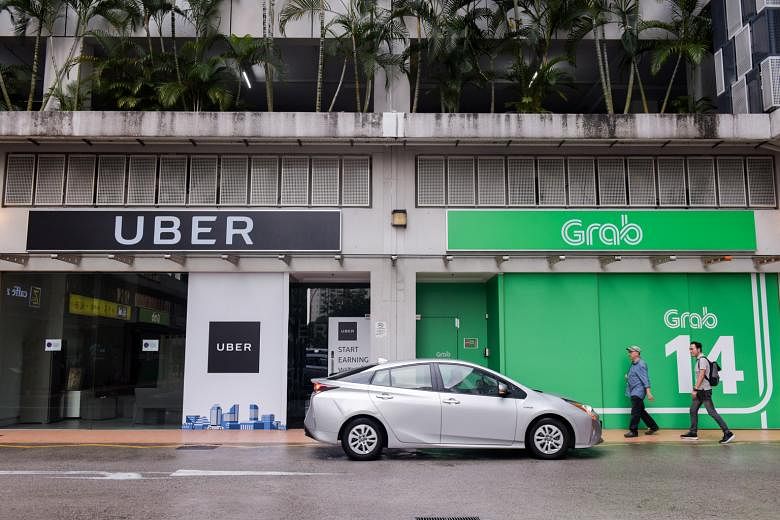When Uber exited suddenly from Singapore, drivers were left high and dry. The episode left a bitter aftertaste, said Mr Ang Hin Kee (Ang Mo Kio GRC), who called for more help for freelancers, many of whom work in the gig economy.
Freelancers are not the only ones affected by disruptive technologies, with several other labour MPs calling for better understanding of artificial intelligence's (AI) impact on jobs, and awareness on which jobs will be at risk in the future.
"Disruptive technologies will come and go, and we can expect this trend to continue," said Mr Ang.
"How will we know if freelancers embarking on the gig economy or availing themselves to such platforms will not be left to deal with another Uber disappearing act?"
He proposed various ways to strengthen support for freelancers and those considering this option, including ensuring that they have access to insurance products to protect them in the event of long-term illness or injury.
More government agencies should also set up dispute resolution frameworks which can help workers through payment disputes, he said.
Mr Ang was one of seven labour MPs who spoke yesterday. Others called for creating greater awareness of what jobs are at risk of disruption and more forward planning.
Mr Patrick Tay (West Coast GRC) suggested conducting a national study on the potential impact of AI and technology on jobs and people. This could help pave the way for the ethical development of technology amid concerns about issues such as liability, privacy and consent.
Laws and regulations could also be updated to address issues arising from their use as well, he added.
There should also be more engagement with workers to identify what are the jobs at risk, and which are the jobs of the future, said Nominated MP K. Thanaletchimi.
While it is easy to name the disruptive changes, it is tougher to deal with them, said Mr Heng Chee How (Jalan Besar GRC).
This is why "we must do our best to gauge their impact on the use of labour and to plan ahead", developing specific, viable transition plans, he said. "We cannot just depend on individual initiative and general provisions and exhortations to deal with the challenge."
Looking ahead, said Mr Melvin Yong (Tanjong Pagar GRC), "AI will be at the core of many of our industries, and we need to prepare our young for such a future", such as by exposing children to statistics and coding.
Mr Zainal Sapari (Pasir Ris-Punggol GRC) called on employers to emulate progressive firms such as Gap or Starbucks, which give better pay packages and generous worker benefits and focus on creating a positive work environment.
"When workers are happy at work, they become walking ambassadors for these companies, often going beyond the call of service to do a good job," he said.


